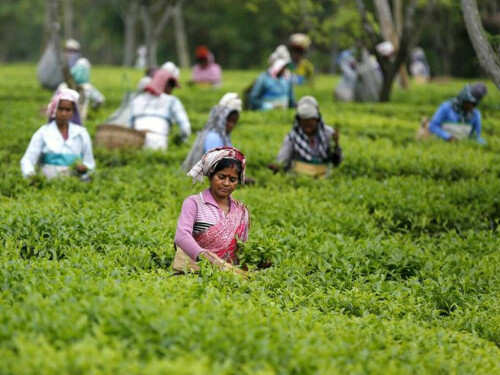Tea Importers Advocate for Tax Reforms to Curb Revenue Losses
Tea importers are pressing the government to implement changes to the import taxation system, asserting that existing loopholes are creating imbalances in legitimate trade and resulting in potential annual revenue losses of up to Rs40 billion. This information was gathered on Saturday, according to Business Recorder.
In its fiscal proposals for the upcoming Finance Bill 2025–26, the Pakistan Tea Association (PTA) stated that over 71,000 metric tons of tea were brought in under a tax-exempt status granted to the Federally Administered Tribal Areas (FATA) and Provincially Administered Tribal Areas (PATA), despite the region’s population being only 4 million.
The association highlighted that the imported volume exceeds the actual demand by 1,000 times, based on a per capita tea consumption of 1.2 kg annually.
Rs40bn Revenue Loss Claimed: Tea Association Calls for Immediate Revocation of SRO 1735
The PTA cautioned that such exploitation is damaging the formal market, decreasing tax collections, and forcing law-abiding importers out of operation.
“We strongly advise the government against extending the tea exemption under FATA/PATA in the overall national interest,” the association stated, while stressing the need for a 4 million kilograms annual cap to mirror needs based on the actual population.
MRP Deemed a Tax Anomaly
PTA chairman Muhammad Altaf has expressed disapproval of the enforcement of SRO 1735(1)/2024, which places a sales tax on tea at a set Maximum Retail Price (MRP) of Rs1,200 per kg—irrespective of actual import costs or the product form.
“The MRP is a tax irregularity that demands prompt action,” Altaf said. “Bulk tea is imported in substantial amounts, typically in bags weighing over 75kg, and is subject to blending, processing, and packaging. Applying MRP-based sales tax at the import stage overlooks this process.”
He mentioned that tea is imported at significantly different prices—ranging from less than $1 per kg to over $3 per kg—but the uniform valuation of Rs1,200 per kg is consistently applied.
“There is no differentiation in taxation based on the actual import value. How can consumers with low incomes be taxed at the same rate as those with high incomes, when tea is a staple consumed daily across all socioeconomic levels?”
Further Reform Proposals
The PTA has presented numerous proposals to the government, which tea importers believe could help minimise misuse and restore fairness in the tea trade. These suggestions are:
- Revocation of the MRP clause
- Elimination of export re-exports under the Export Facilitation Scheme (EFS)
- Improved monitoring at dry ports, with the PTA participating in import verification
The PTA also suggested rationalising tariffs to decrease the motivation for tax evasion. This includes:
Revenue and Market Impact
The PTA projects that with streamlined tariffs and the end of misuse, legitimate imports could rise to 300 million kilograms per year, growing tax revenues to Rs108.9 billion, compared to the current Rs68 billion.



Comments (0)
No comments yet. Be the first to comment!
Leave a Comment